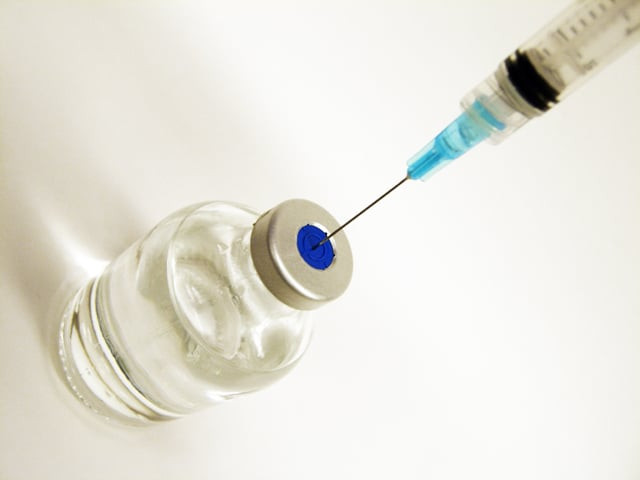Health hurdles: Lack of vaccines hampers anti-pneumonia drive
Officials say staff has already been trained for the programme.

Age groups most vulnerable to pneumonia include children under five and seniors over 65 years of age. PHOTO: FILE
The fight against pneumonia is becoming increasingly challenging for the Khyber-Pakhtunkhwa (K-P) Health Department in the absence of vaccines, which are to be supplied by the federal government.
Last November, the health department announced it will be ready to conduct the vaccination drive by the beginning of 2013, saying all training sessions for the staff will be completed by then.
“Though we have been given some authority in the health sector since the devolution of powers [to provinces under the 18th Amendment], some programmes are still to be financed by the federal government till the next National Finance Commission Award, and the vaccinations come under this category,” said Expanded Program on Immunization (EPI) Deputy Director Dr Janbaz Afridi.

“Vaccination supplies are provided by Global Alliance Vaccine and Immunization (GAVI), which works through the federal government’s support and we hope to get them by next month,” Afridi added.
“We have provided trainings to technicians under the EPI on how to administer the vaccinations, but are yet to receive the supply of the newly-introduced pneumococcal vaccines,” said another EPI official requesting anonymity. Pneumonia cases can be reduced by 25% if vaccinations were to begin, he added.

“Each parent is required to vaccinate his/her child in the sixth, 10th and 14th month following birth. We could reach a landmark and achieve the Millennium Development Goals in health because we rank among the top countries for high infant mortality rate,” said the EPI official.
Khyber Teaching Hopital’s Head of Pediatrics Dr Khawar Nadeem said pneumonia results in the death of 41 out of 1,000 children within the first month of their birth, 61 in their first year and 72 before the age of five.
Age groups most vulnerable to pneumonia include children under five and seniors over 65 years of age. Those suffering from HIV, sickle cell diseases (SCD) and chronic kidney diseases are also at a higher risk of pneumococcal infection. Infants that are breast fed and exposed to indoor smoke are also at risk.
According to the World Health Organization (WHO), more than 500,000 children under the age of five die from pneumococcal diseases every year across the globe. Pakistan is among the 10 countries with the highest number of pneumococcal cases, 681,000, and 27,000 deaths as a result every year.
Published in The Express Tribune, April 16th, 2013.













COMMENTS
Comments are moderated and generally will be posted if they are on-topic and not abusive.
For more information, please see our Comments FAQ